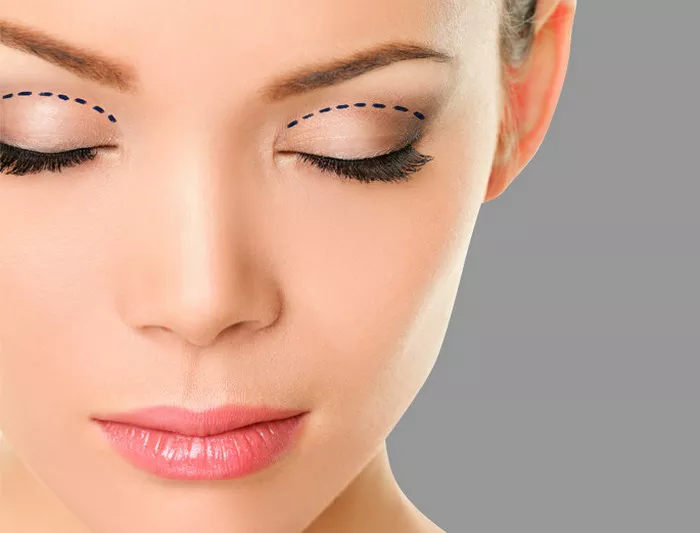Blepharoplasty, also known as eyelid surgery, is a common cosmetic procedure that aims to rejuvenate the appearance of the eyelids by removing excess skin, fat, and muscle. While the surgery can deliver significant aesthetic improvements, it is important to be aware of potential side effects and the recovery process. One of the common concerns after blepharoplasty is blurry vision. In this article, we will explore the factors that can contribute to blurry vision after blepharoplasty and provide insights into the typical duration of this symptom.
Understanding Blurry Vision After Blepharoplasty
Blurry vision is a common occurrence after eyelid surgery, especially during the initial stages of the healing process. The reasons behind this temporary visual disturbance can be multifactorial:
-
Swelling
Swelling is a natural response to surgery, and it is a common cause of blurry vision after blepharoplasty. Swelling around the eyes can put pressure on the tear ducts, leading to an inadequate production and distribution of tears, which can result in dry eyes and blurry vision.
-
Eye Ointment
Following blepharoplasty, your surgeon may prescribe an ointment or eye drops to help lubricate the eyes and promote healing. While these medications are essential for post-operative care, they can temporarily cause vision to be blurry or hazy.
-
Eye Drops
It is common for patients to use eye drops after blepharoplasty to relieve dryness and discomfort. Some eye drops can have a temporary blurring effect immediately after application, but this should subside as the drops are absorbed.
-
Bruising and Inflammation
Bruising and inflammation are typical after eyelid surgery. When the eyelids are swollen and bruised, the surrounding tissues can apply pressure to the eyes, leading to blurred vision.
-
Corneal Sensitivity
The cornea, the clear front surface of the eye, can become temporarily sensitive and irritated after surgery. This sensitivity can cause discomfort and contribute to blurry vision.
Duration of Blurry Vision
The duration of blurry vision after blepharoplasty varies from person to person. In most cases, it is a temporary side effect that gradually improves as the healing process progresses. The following timeline provides a general guideline for how long blurry vision may last:
-
Immediately After Surgery
It is common for patients to experience blurry vision immediately after blepharoplasty due to the effects of anesthesia, swelling, and the use of ointments or eye drops during the procedure. This initial blurriness should start to improve as the anesthesia wears off and the post-operative care routine is followed.
-
First Few Days
During the first few days after surgery, it is normal for blurry vision to persist. Swelling and bruising are typically at their peak during this time, which can impact vision. The use of cold compresses, prescribed eye drops, and ointments as directed by your surgeon can help alleviate swelling and discomfort and promote clearer vision.
-
First Week
By the end of the first week, the swelling and bruising around the eyes should begin to subside. As a result, blurry vision should gradually improve. However, it is essential to continue following your surgeon’s instructions for post-operative care, including the use of prescribed medications and keeping the eyes clean and moisturized.
-
Two to Four Weeks
By the second to fourth week post-surgery, most patients experience a significant improvement in vision. The swelling and bruising should have resolved, and the eyes should be less sensitive and more comfortable. However, it is important to note that individual healing rates may vary, and some patients may require a longer time for their vision to fully normalize.
Consultation with a Surgeon
If you are experiencing persistent or concerning blurry vision after blepharoplasty, it is important to consult with your plastic surgeon. They can evaluate your condition, examine your eyes, and provide appropriate guidance. In some cases, additional treatments or adjustments to the post-operative care routine may be necessary.
Conclusion
Blurry vision is a common and temporary side effect of blepharoplasty. Swelling, the use of ointments or eye drops, bruising, inflammation, and corneal sensitivity can all contribute to this visual disturbance. The duration of blurry vision varies from person to person, but it generally improves within the first few weeks after surgery. Following your surgeon’s instructions for post-operative care, including the use of prescribed medications, cold compresses, and keeping the eyes clean and moisturized, can help alleviate swelling and discomfort and promote clearer vision. If you have any concerns about your blurry vision or if it persists beyond the expected recovery timeline, it is important to consult with your plastic surgeon for further evaluation and guidance.


